Chad: Sudan story—Nutrition Center
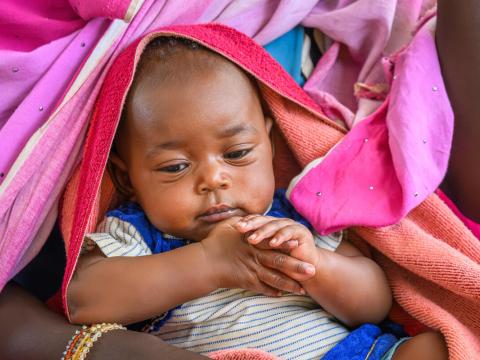
Farchana, Chad, is about a bumpy 90-minute drive away from the border crossing at Adré (where thousands of Sudanese refugees, mostly mothers and children are crossing into Chad). Farchana is home to a large population of Sudanese refugees, mostly from West Darfur. The first camp opened here on January 17, 2004, during the conflict that claimed the lives of more than 200,000 Darfuri and drove another 2 million from their homes. Since then, there have been two extensions to the Farchana camp as more refugees arrive. Living conditions are harsh, with food and water hard to come by.
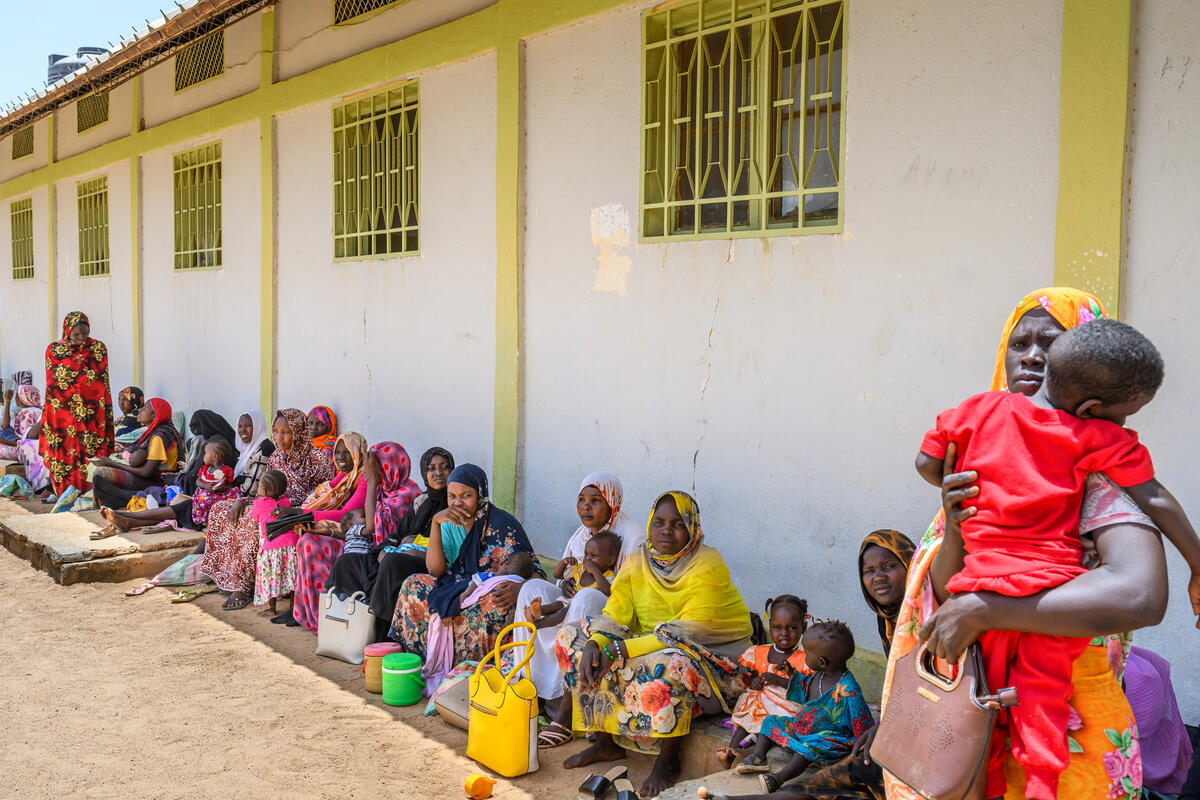
Hissan Arabi Sahanay is the head of the subdistrict of Farchana. “This is a catastrophic time,” he says. There are 184,000 people living in Farchana, over 56,000 of them refugees. The refugee population is growing. But the tens of thousands of refugees are living on farmland loaned the government by Chad farmers. The rainy season is on the way, but the farmland is occupied now, meaning they can’t plant their crops. Just this week, 5,000 more refugees were trucked up to Farchana. On one day, 22 families with injured family members received homes, about 200 people in all.
The nutrition center
Albachir Mahamat Albachir, the doctor who runs the nutrition and rehabilitation center in Farchana, is concerned about the influx of refugees. “I want the world to know that when you come here, you can see the problem,” he says. “The victims of the problem.” He says things are getting worse. “There are many new cases because there are new refugees. We are expecting 50,000 new refugees,” he says. “Now we have 20,000.
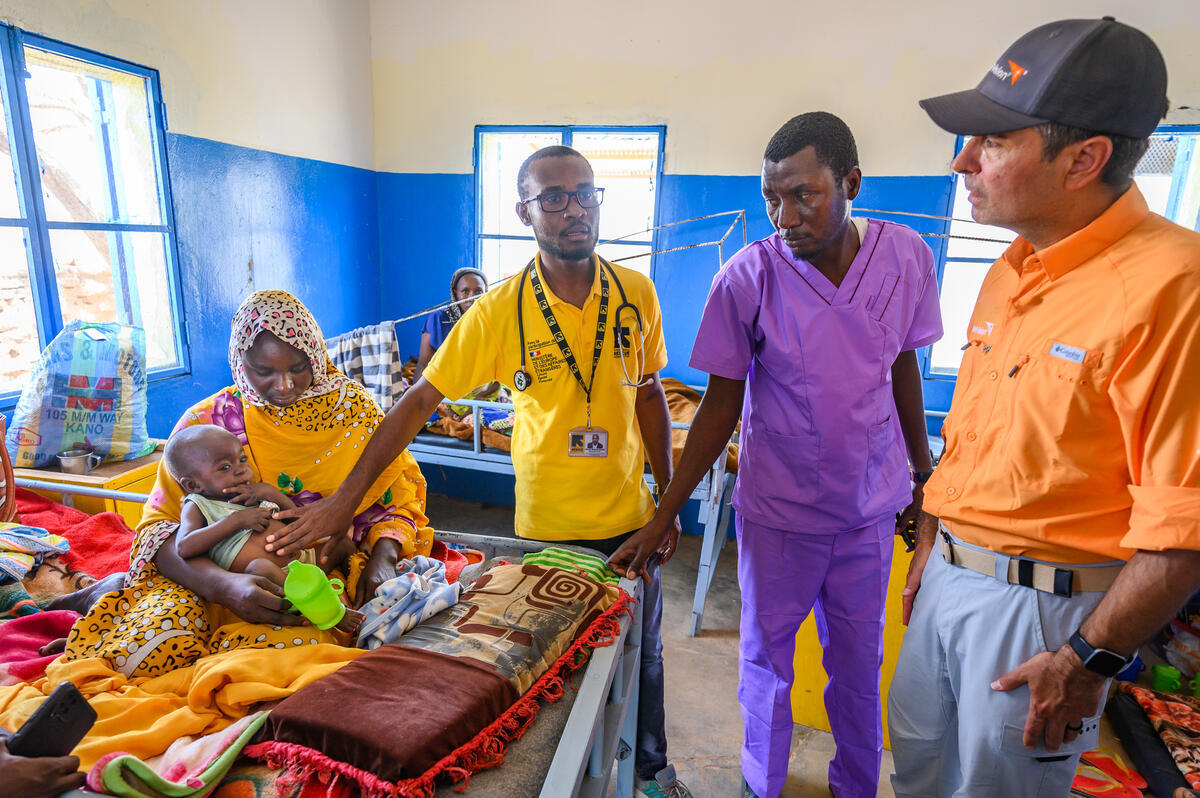
“I am afraid for two reasons: The number is increasing. Every day we have a new patient with malnutrition. Our capacity will be challenged because the number of staff is limited.” On this day, 11 children are packed into a small space with their mothers. There is barely enough room to turn around. And second reason he is afraid: “Electricity. None. Big problem: they need to go to Adré or Abéché because there is electricity. Every day we have a child who needs oxygen. But with no electricity, we can’t give them oxygen.” The busy hospital has just one ambulance.
Tahani, Adam, and Adeeb
Tahani is on her own. She has no idea where her husband is.
Tahani, age 20, and her 21-month-old twins, Adam and Adeeb, are among the refugees at the nutrition center. They left El Geneina in Sudan last June (2023) because of war. The memories are awful. “When I started coming, I faced shooting and people killing people on the road,” says Tahani. “Houses were on fire and villages.” She walked to Adré with the twins. “I carried one and a relative carried the other one.”
Dr. Albachir, the physician who runs the nutrition center, says they are treating the twins with a fortified milk called F-75. “For Adam, [the problem] is severe malnutrition,” he says. “With diarrhea.” Adam’s weight dropped overnight. This morning, he only weighs 13 pounds. “I am worried, but we can’t control it,” he says. “In the severe cases, the patient’s weight doesn’t increase for three or four days.” He says the F-75 will help Adam’s kidneys and liver begin to function properly again.
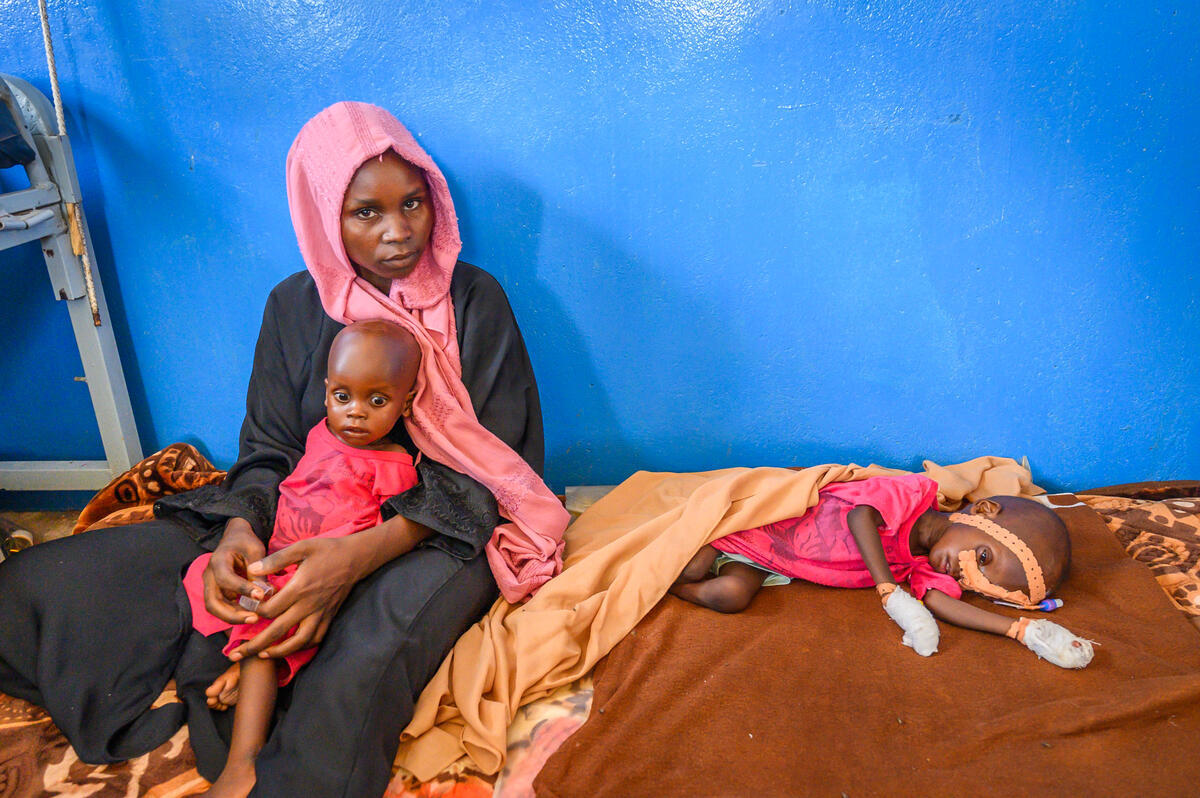
The doctor works with five nurses, serving a population of thousands. “It is very difficult,” he says. “You need energy. At any time, they call me I come. Seven days a week, 24 hours a day. Daytime. Nighttime. They call me, and I come.” He comes for the children. “They could die at any moment,” he says.
Adeeb cries weakly in his mother’s arms. A fly lands on Adam’s face. His eyes are open. He doesn’t brush it away.
The babies were sick last June but are now severely malnourished. “I need help. I’m most worried about Adam.” Adam mewls in her arms. “He refuses to eat. I didn’t have milk to breastfeed them.”
Ikbal and Habiba
Ikbal has come to the center with her boy, 11-month-old Habiba, who is malnourished. She’s brought her 3-year-old daughter, Habsa, as well. Habsa lies on the cot next to her mother, her forehead beaded with sweat. The family came from El Geneina on July 10, 2023. “We were attacked by the militia. They killed my father,” Ikbal says. “I lost my aunt. Then I came running. I took nothing. I came empty-handed.” Ikbal carried Habsa on her back. She was pregnant with Habiba.
“We passed by dead corpses on the road. It took two days. It was the first time I saw a bad thing like this.” Habsa’s face is covered in sweat. She knows nothing is known about her home. Now Habiba has stopped eating. He weighs only 6 kilograms, about 13 pounds.
“Before, it was safe. There were no problems,” she says of El Geneina, which means garden in Arabic. “I took nothing. I came empty handed.” She doesn’t know what happened to her home.
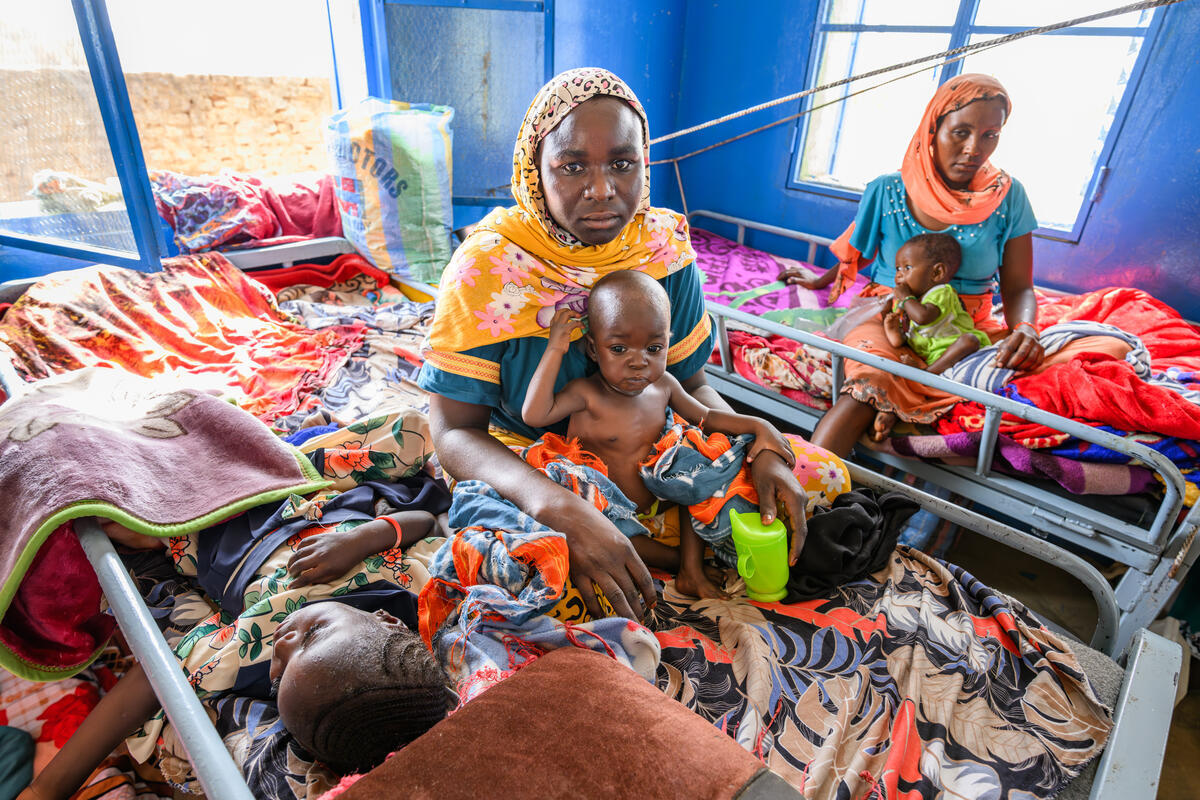
Her only thoughts as she ran, pregnant, with her little girl on her back: “How can I save my child? How can I save myself?”
Now she is worried for Habiba. “The doctor told me he is malnourished,” she says. “The baby stopped eating.”
Ikbal was studying at school when the violence began. She had a bright future. “I hope that my children will get better so I can continue my studies,” she says. She wants to become a doctor. Habiba puts his hand on his mother’s wrist. “I hope it will be peaceful so that I can go home,” she says.
Amina Guma and Thyisor
Amina Guma, 23, has brought her 10-month-old daughter, Thyisor, to the clinic. She and her now-husband arrived in Chad from Sudan in 2022, fleeing militia attacks. They ran to Adré. “I only remember people fighting on the road,” she says. “And killing and running.” She married her husband when they arrived in Chad, and they had Thyisor.
Thyisor cries. Amina tries to give her fortified milk in a sippy cup, but the baby doesn’t want it. She stretches her head back and cries.
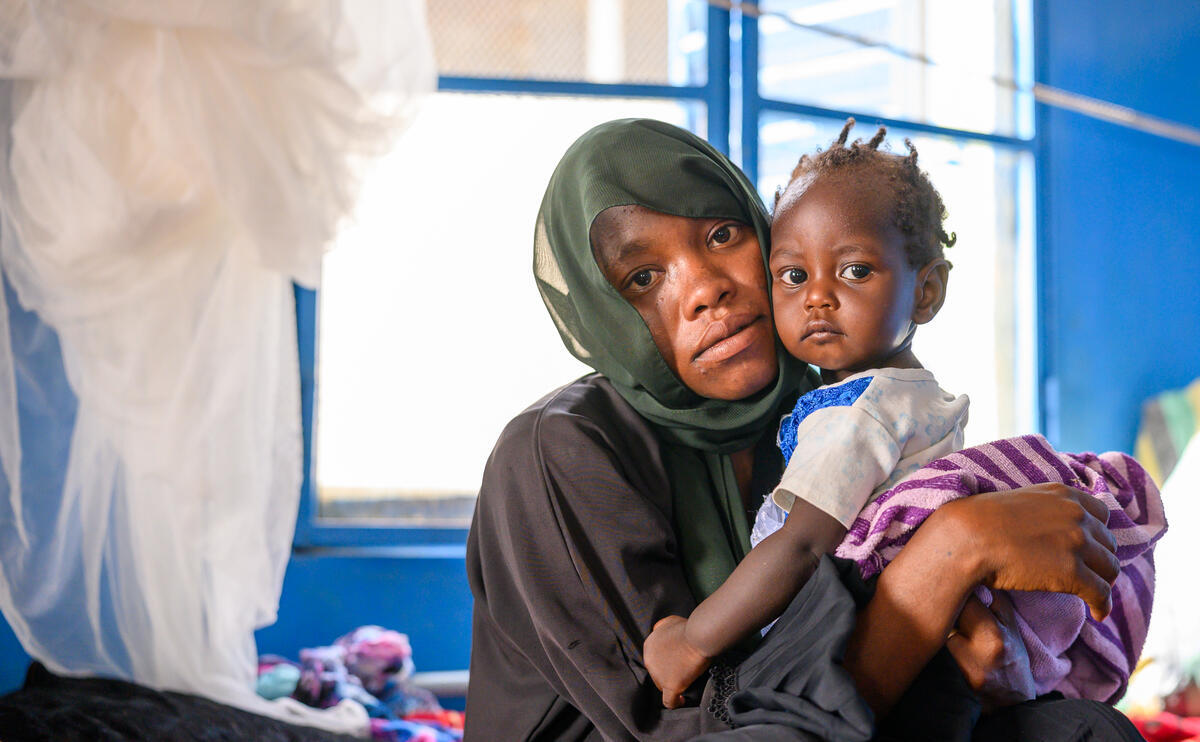
Her mother’s biggest concern: “How to get the food to help her to eat,” she says.
In Farchana, World Vision is partnering with the World Food Programme and is identifying severely malnourished children. World Vision has school feeding programs in four camps, including Farchana.